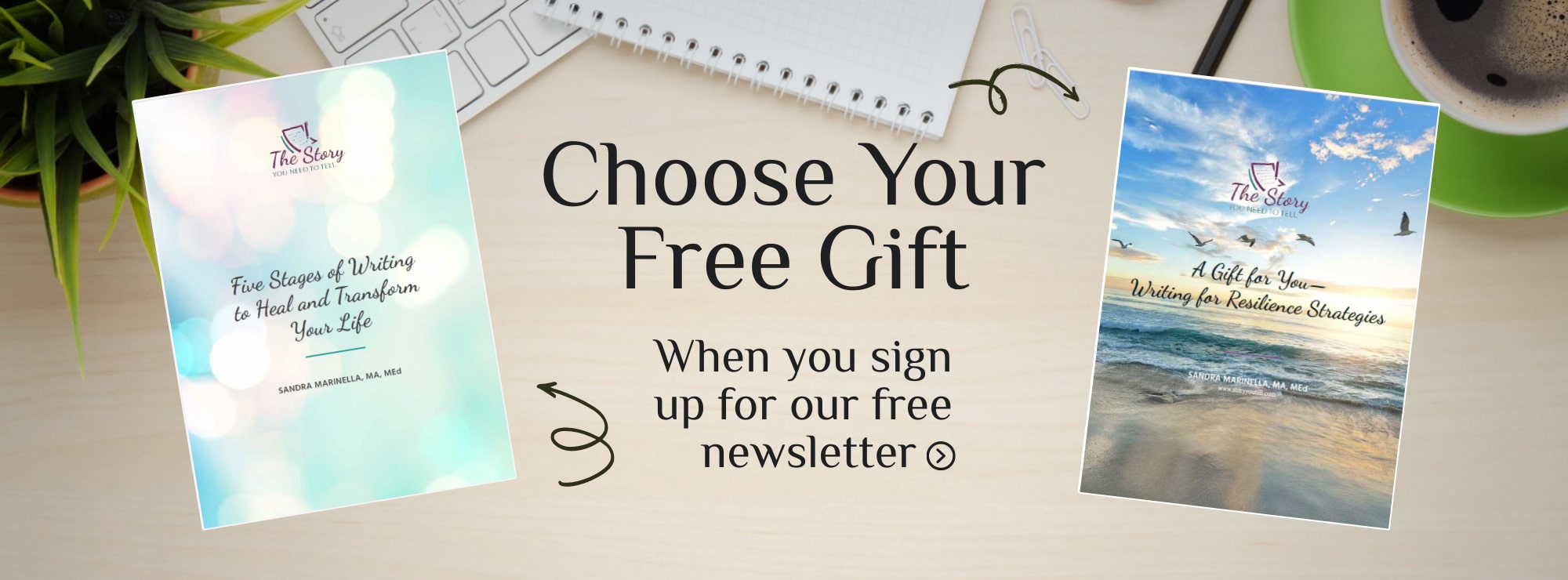A New Voice
I have always loved words. But I did not always love poems. It took years before the brilliant insights embedded in a poem began to seep into me. It would take another decade before I would dare to share poems with my students. Now when I find a quote or poem rich in wisdom, I like sharing them with others. But they are not always well received. A lesson I learned from Emma.
A few weeks ago, I was caught up in teaching story writing to a dynamic group of fifteen storytellers. In this Zoom writing workshop there were eight women with cancer; two of them had stage four and were, of course, unsettled by their diagnosis. Three women, all from California, were cancer survivors who wanted to write their stories. Two women had lost their spouses and wanted to write about their dramatically different losses–one wanted to honor her loss, and the other wanted to help others escape the nightmare she had endured. There was Maria with razor sharp insights, and there was Emma, both beautiful and a bit befuddled.
One day I shared with them my favorite poem, “The Journey” by Mary Oliver. We read it. We wrote about it. Midway through a robust discussion, Maria lifted her head, shoved a huge curl out of her face, and read these words,
“there was a new voice
which you slowly
recognized as your own,
“I love these words from the poem for this struggle is the struggle we all have. I think I am finding my voice, and it lifts you up, changes you, to find your voice.”
Emma’s turquoise eyes flickered, and then she unexpectedly popped on her Zoom mic, and her voice had an urgency that was new. “I want a voice. But I can’t always understand what is being said. I read the poem, and I want it to make sense to me, but I don’t get it.” She paused and bit her lip, looking down with a shadow cutting across her face. “As a traumatic brain injury survivor, I get frustrated. When I don’t understand things, I don’t know how I can find my voice.”
I understood her pain. I think we all did. But her words carried me back to a time when I felt my voice had been ripped out of me. Haven’t we all had that experience? For me it was in a medical office, a box-like room that felt like a coffin, where I met an awkward radiologist who stammered my fate, “You—you—you have breast cancer.” In the coming days life became a dark rabbit’s hole that I had tumbled into.
For months I struggled to find the words to talk about my cancer. Indeed, I found solace in a bright red journal. On those pages I raised questions, poured out my fears, and shared painful memories of test after test, physician after physician, and surgery after surgery. In that time, I would see my ninety-year-old mother’s scars from losing her breasts. In that time, I would lose both my breasts. In that time, I would cry and struggle to find my way forward. But I did. Cancer changed me, and my writing in the bright red journal was a huge part of this. It took time, but word by word I found my way back. I found my voice, perhaps a new voice.
Yesterday, as I finished teaching my writers, each one read her story. Even Emma. She read about her struggle with her traumatic brain injury. She explained that the biggest surprise came when she returned to her first-grade teaching job, a job she had loved. It proved impossible. She read of her struggle to make dinner for her three children. Possible but hard. She talked of wanting to understand a beautiful poem but acknowledged she could only learn about it from others. She explained how hard it is to be this new person who tries to understand and often doesn’t—but sometimes surprises herself. She described her new life as a puzzle that needed to be put together. Some days the pieces fit. Some days not so much.
When she finished there were tears. Her tears. Our tears. In this way we welcomed another beautiful, reclaimed new voice.

